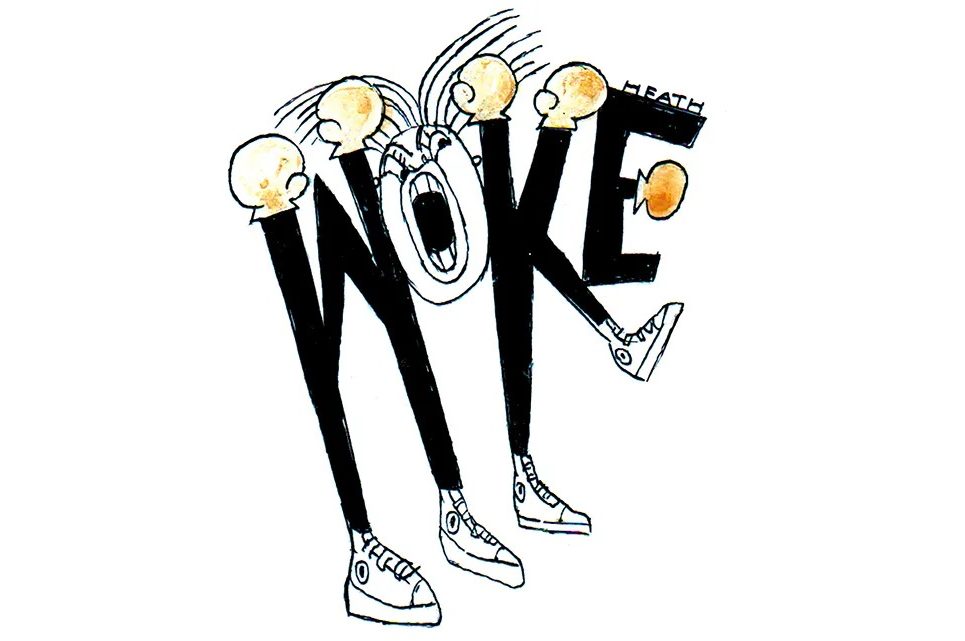Has the word “woke” become a lazy, all-too-common cliché? The novelist and Spectator columnist Lionel Shriver thinks so. During an appearance at the Hay Festival, she has lamented how the word has become “horribly overused.” The author says: “I’m as tired of it as you are. There have been other people trying to coin something else, which we’d also get tired of, but they usually have more than one syllable so they don’t catch on.”
Readers of Shriver’s journalism and fiction will know she has become one of the most unforgiving critics of woke. Her latest book, Mania, imagines a society in which those beholden to this ideology fight against “cognitive discrimination,” insisting that everyone has the same intelligence level and that all qualifications and grades be abolished.
But she is right, in a way. Woke has indeed become a debased cliché. It’s often employed these days to apply to news stories that sound a bit barmy and ultra-leftwing. The word is now spread too thin. Yet woke, and its associated abstract nouns “wokeness” and “wokery” (I find the latter more aesthetically pleasing), does refer to a specific social phenomenon. It has a unique signification. In this respect, we remain grudgingly obliged to use it.
It is not like the word “woke” is meaningless. It is a form of hyper-political correctness, with a specific obsession with race, gender and the correct use of language. It is a belief that power-relations are ubiquitous and invisible and demands that everyone conform to its worldview. It believes that western societies are inherently racist and believes minorities that have been traditionally oppressed are both morally superior and in need of redress.
Wokery certainly is not “simply good manners” as its apologists often insist. Insisting strangers address you by your chosen pronoun, demanding to enter women’s bathroom even when you are not welcome there, demonizing all white people merely on account of their skin: these are not the marks of a good-mannered citizen.
The “good manners” myth is taken apart by Andrew Doyle’s 2022 book on the phenomenon, The New Puritans, in which he describes it as such: “The hectoring and dogmatic tone, the obscene generalizations, the unfalsifiable claims in lieu of evidence, the lack of self-awareness, the narcissistic conviction that they can read other people’s minds, the impulse to interpret critics in the most uncharitable possible way, the outright bigotry and intolerance of dissent.”
The title of Doyle’s book hints that even three years ago many sought to avoid the already overused “w” word (although Joanna Williams didn’t shy away from it in her book, Woke, also published in 2022). But as Shriver has observed, we have yet to find an acceptable and popular synonym. In this respect, “woke” looks set to go down the same path as that 1990s phenomenon, “political correctness,” which, especially in that hackneyed expression “political correctness gone mad,” became a cliché thrown back at conservatives. The more recent expression, “virtue signaling,” is already on a similar path, and now sounds a bit trite and worn.
Yet “political correctness” was useful in its day, and “virtue signaling” remains useful in ours, because both applied and apply to very real social developments and phenomena. They described things that were indeed going on and these expressions rightfully had their use and place. The same goes for woke.
Alas, there’s no point campaigning for an alternative, because trying to artificially manipulate language by decree rarely works (see the futile attempts over the years by the French to insulate their language from imported English words). If it were up to me, the best expression would be “hyper-liberal.” But these matters aren’t up to me. Or you.
Woke is here to stay. In the meantime, we can only remain vigilant to those who employ it merely to signify “something that sounds a bit mad and lefty.” Woke means something far more substantial and sinister than that.
This article was originally published on The Spectator’s UK website.


























Leave a Reply